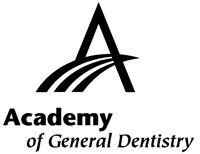Tips for Tots' Teeth
Tips for Tots’ Teeth February Is National Children’s Dental Health Month Chicago, January 30 — More than 16 million children in the U.S. suffer from dental decay, and research shows that many parents lack basic information about their children’s oral
Tips for Tots’ Teeth
February Is National Children’s Dental Health Month
Chicago, January 30 — More than 16 million children in the U.S. suffer from dental decay, and research shows that many parents lack basic information about their children’s oral health. In fact, according to a survey of parents conducted by the Ad Council, fewer than half of children in the U.S. brush their teeth twice a day or more. In observance of National Children’s Dental Health Month, the Academy of General Dentistry (AGD) encourages parents to introduce good oral health habits to their children at an early age.

A child’s first dental visit should occur six months after his or her first teeth erupt or by his or her first birthday. During this initial visit, the dentist will examine the development of the child’s mouth.
“Childhood dental decay is largely preventable, and taking your child to see a dentist at an early age is the best way to prevent future oral health problems,” AGD Spokesperson R. Claire Campbell, DMD, FAGD, mother of a 4-year-old child. “This will instill positive behaviors that will result in a lifetime of good oral health.”
In addition to tooth decay, your dentist can provide insight about teething irritation, gum disease, and prolonged thumb or pacifier sucking. To further promote good oral health in children, parents can utilize these five tips:
- As soon as the first teeth come in, begin brushing them with a small, soft-bristled toothbrush and water. Consult with your dentist before using toothpaste if your child is under age 2. Teeth should be brushed for 2 minutes, twice a day.
- Help tots floss their teeth. The earlier you introduce flossing, the more routine it becomes for the child.
- Avoid teeth misalignment by monitoring excessive sucking of pacifiers and fingers.
- Never allow your child to fall asleep with a bottle containing milk, formula, fruit juice, or sweetened liquids. Your child’s teeth are more susceptible to cavities caused by the sugar in these liquids while they are asleep due to a decrease in salivary flow.
- Encourage children to drink tap or fountain water. If you live in an area where the public water supply is not fluoridated, consider asking your dentist for a prescription for a fluoride supplement or purchase water that is fluoridated.
“The best way to teach a child how to brush is to lead by good example,” says Dr. Campbell. “Allow your child to watch you brush your teeth to teach the importance of good oral hygiene.”
Children, like adults, should see the dentist every six months. For a young child, some dentists may schedule interim visits every three months to build the child’s comfort and confidence levels or to perform necessary treatment.
For more tips to promote good oral health in children, visit KnowYourTeeth.com or 2min2x.org.
# # #


